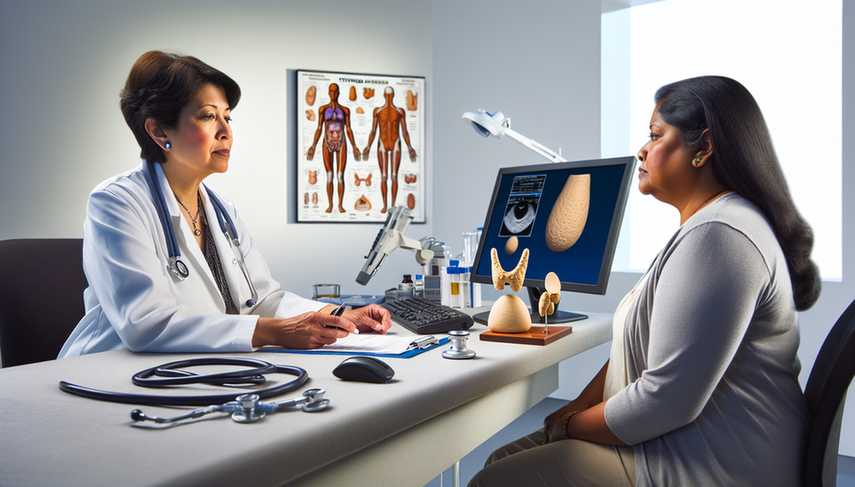Hypothyroidism Diagnosis: Clinical Evaluation and Hormonal Analysis of Elevated TSH, Low Free T4, and Thyroid Antibodies

The diagnosis of hypothyroidism is a process that requires careful evaluation of both clinical symptoms and hormonal analyses. Hypothyroidism is a common condition that affects a significant portion of the population, particularly women and older individuals. Symptoms can range from fatigue and weight gain to cold intolerance and voice changes; however, they are nonspecific and may be confused with other medical conditions. Therefore, the diagnosis primarily relies on measuring elevated TSH and low free T4 levels in the blood.
Elevated TSH is the most sensitive marker for detecting primary thyroid dysfunction in most outpatient clinical situations. However, it is crucial to consider the variability of TSH levels according to age and other coexisting medical conditions, such as polypharmacy and comorbidities, especially in elderly patients [1]. Additionally, the presence of thyroid antibodies may indicate an autoimmune etiology, such as Hashimoto's thyroiditis, which is a common cause of hypothyroidism [2].
In the context of subclinical hypothyroidism, where TSH levels are elevated but free T4 remains within the normal range, the decision to initiate treatment should be individualized. Evidence suggests that treatment with levothyroxine does not always improve quality of life or thyroid-related symptoms in adults with subclinical hypothyroidism [3]. However, in pregnant women or patients with TSH levels above 10 mIU/L, treatment may be beneficial [4].
In conclusion, the diagnosis of hypothyroidism requires a combination of clinical evaluation and hormonal testing. Proper interpretation of TSH and free T4 levels, along with consideration of clinical symptoms and the presence of thyroid antibodies, is essential for optimal management of this condition. Personalizing treatment, especially in cases of subclinical hypothyroidism, is fundamental to avoid unnecessary treatments and improve clinical outcomes.
Referencias
- [1] Diagnosis and treatment of hypothyroidism in the elderly.
- [2] TSHRVariant Screening and Phenotype Analysis in 367 Chinese Patients With Congenital Hypothyroidism.
- [3] Thyroid hormones treatment for subclinical hypothyroidism: a clinical practice guideline.
- [4] Subclinical Hypothyroidism in Pregnancy: A Systematic Review and Meta-Analysis.
Created 2/1/2025
